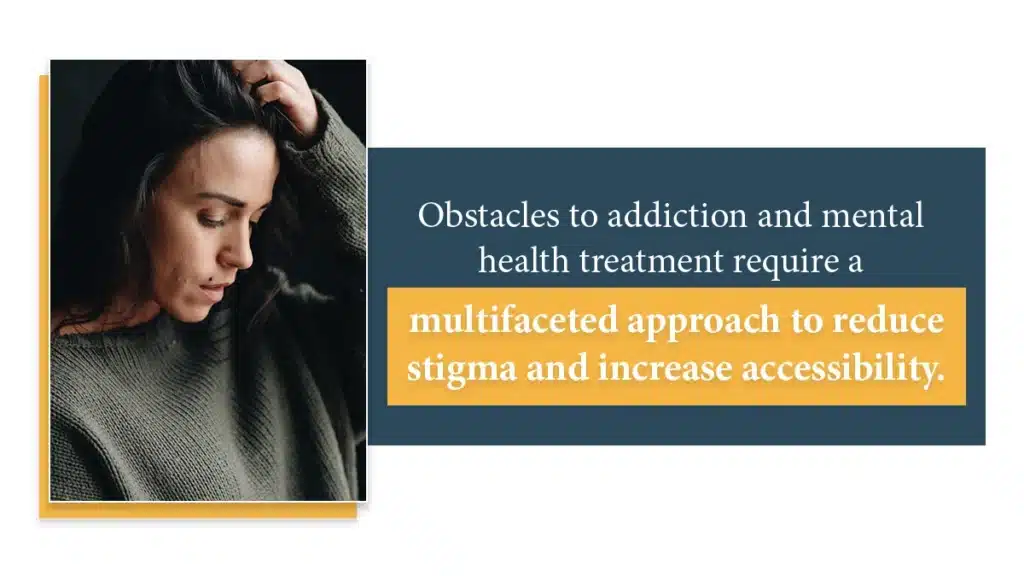Substance abuse has become a growing problem in Massachusetts, which has led to an increased demand for addiction treatment. The New England region has been hit particularly hard, with higher-than-average rates of deaths due to substance abuse.
To address this issue, comprehensive addiction treatment solutions are needed to help break the cycle of addiction by addressing both the physical and mental aspects of the problem.
Access to treatment is crucial for achieving lasting recovery, reducing the societal impact of substance abuse, and lowering healthcare costs. Combining medical expertise with community support can enhance treatment outcomes and improve the chances of successful recovery.
Key Takeaways
Massachusetts needs effective addiction treatment due to rising substance abuse and deaths in New England. Here’s what you need to know:
- Opioids, alcohol, and stimulants contribute to a surge in substance abuse, highlighting the need for urgent intervention.
- Obstacles to addiction and mental health treatment require a multifaceted approach to reduce stigma and increase accessibility.
- Choose an addiction treatment center with expert care, accreditation, support, and good reviews.
Recovering Champions specializes in addiction treatment, offering a full continuum of care. Call us at (844) 888-5391 to get individualized plans for lasting recovery.
Addiction Statistics in Massachusetts
According to the Massachusetts Department of Public Health, major substances contributing to addiction include opioids, alcohol, and stimulants. Shockingly, recent statistics reveal a surge in substance use, with opioids leading the detrimental charge. The state has witnessed a staggering increase in opioid-related deaths, stressing the pressing need for intervention.
When it comes to treatment, the Substance Abuse and Mental Health Services Administration (SAMHSA) reports that Massachusetts has made strides, with over 200,000 individuals accessing substance use treatment annually. However, the battle is far from won, highlighting the urgency for effective addiction treatment strategies.
Importance of Addiction Treatment in Massachusetts
Addiction treatment in Massachusetts plays a crucial role in helping individuals overcome substance abuse challenges. It offers vital support to those facing the complexities of addiction. Treatment centers provide a range of therapies tailored to each person’s unique needs.
Massachusetts recognizes addiction as a health issue, not a moral failing. Seeking treatment is encouraged and supported by various programs. These treatments involve counseling, group therapy, and sometimes medications to manage withdrawal symptoms. They aim to address both the physical and psychological aspects of addiction.
The state is committed to addiction treatment, aligning with a broader national effort to combat the opioid epidemic. Massachusetts has implemented policies and programs to increase access to treatment services, ensuring that individuals can find help when needed.
Effective addiction treatment not only aids individuals in recovery but also contributes to community well-being by reducing the societal impact of substance abuse. It fosters healthier, more resilient communities across the state, promoting a brighter future for all.
Types of Addiction Treatment
Addiction treatment encompasses a range of therapeutic approaches. They aimed at helping individuals overcome substance abuse or behavioral dependencies.
From medical interventions to psychotherapy and support groups, various methods address the complex nature of addiction. This brief overview explores diverse types of addiction treatment that contribute to recovery and sustained well-being.
Residential Treatment
For individuals requiring intensive support, residential treatment provides a structured environment conducive to recovery. It involves living at a treatment facility, receiving 24/7 care, and participating in therapy and support groups. This immersive approach is beneficial for severe addiction cases, providing a temporary escape from triggers and stressors.
Outpatient Treatment
Catering to those with daily responsibilities, outpatient treatment offers flexibility and crucial support for real-world challenges.
Day Treatment Program
Intensive outpatient programs (IOP) and partial hospitalization programs (PHP) bridge the gap between residential and outpatient care. IOP involves regular therapy sessions, while PHP offers a more comprehensive approach, often including medical supervision. These programs suit individuals requiring substantial support but not the 24/7 care of residential treatment.
Medication-Assisted Treatment
Medication-assisted treatment (MAT) integrates medications with counseling and behavioral therapies. This evidence-based approach helps manage withdrawal symptoms and cravings, promoting a smoother recovery journey. MAT has shown efficacy, especially in opioid addiction cases, offering a holistic strategy for sustained recovery.
Aftercare
Completing a treatment program doesn’t mark the end of the recovery journey. Aftercare plays a vital role in preventing relapse. Support groups, counseling, and continued medical supervision contribute to ongoing recovery efforts, ensuring individuals maintain their progress in the face of life’s challenges.
Challenges in Addiction Treatment

Navigating addiction treatment is fraught with challenges, as individuals face physical, psychological, and societal hurdles. The challenges of dealing with stigma, relapse risks, and limited access to comprehensive care can be overwhelming.
Here are some of the challenges faced by individuals and healthcare professionals in addiction treatment, shedding light on the complexities of addiction recovery.
High Demand for Treatment
Meeting the high demand for addiction treatment poses a significant challenge in the United States. Many seeking help face prolonged wait times due to limited resources. Expanding treatment facilities, personnel, and funding is vital to accommodate the overwhelming need for assistance. Swift action at both local and national levels is necessary to bridge this gap and ensure timely access to effective addiction care.
Addiction Stigma
The stigma surrounding addiction is a formidable obstacle to treatment. Negative stereotypes and judgment hinder individuals from seeking help. Addressing and dismantling these biases through education and open conversations are essential. Promoting the understanding that addiction is a medical condition, not a moral failing, encourages more people to seek treatment without fear of judgment.
Mental Health Stigma
The stigma linked with mental health conditions complicates the treatment landscape. Many individuals with addiction also face mental health challenges, and the dual stigma can be isolating.
Normalizing discussions about mental health, just like physical health, reduces stigma. Integrated approaches that address both addiction and mental health simultaneously provide comprehensive care, promoting better outcomes. Reducing stigma is pivotal for creating an environment where seeking help for mental health and addiction is embraced rather than shunned.
Choosing an Addiction Treatment Center
When selecting a treatment center, several factors warrant consideration. Consider the location, as some prefer local centers for family involvement. Confirm insurance coverage and explore financial options.
Read reviews and testimonials for insights. Assess whether the facility treats co-occurring disorders. Ensure a comfortable environment conducive to healing. Making an informed choice increases the likelihood of successful recovery.
Accreditation
Choose a facility accredited by reputable organizations such as the Commission on Accreditation of Rehabilitation Facilities (CARF) or The Joint Commission. Accreditation ensures adherence to high standards of care, enhancing the likelihood of a successful recovery journey.
Expert Care
A qualified and experienced team of professionals is fundamental to effective treatment. Look for centers with licensed therapists, medical staff, and addiction specialists. Their expertise ensures tailored care addressing individual needs.
Evidence-Based Techniques
Effective treatment relies on evidence-based techniques. Ensure the chosen facility integrates proven therapies backed by scientific research. This commitment to evidence-based practices enhances the likelihood of positive outcomes.
Friendly Staff
A supportive and compassionate environment is conducive to recovery. Choose a treatment center with staff that fosters a positive atmosphere where individuals feel encouraged and understood.
Addressing addiction in Massachusetts demands a multifaceted approach, from understanding the scope of the issue to embracing varied treatment options. The battle against addiction is ongoing, but with strategic interventions and a collective commitment, individuals can find hope and healing on their journey to recovery.
Frequently Asked Questions (FAQ)
What types of addiction treatments are available in Massachusetts?
In Massachusetts, diverse addiction treatments address substance use disorders, including drug and alcohol addiction. Alcohol rehab and detox services offer medical care in a supportive environment.
Inpatient treatment programs, with professional staff, focus on the specific needs of patients. Family therapy is crucial, involving family members in treatment plans. For mental health issues, dual diagnosis treatment is available, considering both addiction and mental illness.
Cognitive behavioral therapy aids recovery, along with drug rehab and residential programs. Quality care is ensured throughout the rehabilitation process, highlighting a comprehensive approach to addiction, focusing on individual needs and a commitment to lasting recovery.
How can I find the right addiction treatment facility in Massachusetts for me or my loved one?
When seeking the right addiction treatment facility in Massachusetts, consider the Indiana Center for Recovery. Their team members specialize in evidence-based addiction treatment, offering a full continuum of care.
From alcohol detox to residential treatment programs, they address drug addiction, prescription drugs, and opioid use disorder. With individualized treatment plans, the center emphasizes quality of care and employs evidence-based therapies like cognitive behavior therapy.
Providing a first step towards recovery, the rehab facility focuses on short-term and inpatient drug treatment, incorporating life skills and motivational interviewing. For comprehensive substance abuse treatment, the Indiana Center for Recovery offers information and support.
What is a traditional sober living home in Massachusetts?
A traditional sober living home in Massachusetts is a supportive residence for people in recovery from substance use disorders. These homes provide a transitional environment, helping people adjust to a sober lifestyle after completing primary treatment.
Residents live together, sharing responsibilities and supporting each other’s recovery journeys. House rules typically include abstinence from substances, regular drug testing, and participation in group meetings.
While not treatment centers, sober living homes offer structure, accountability, and a sense of community, promoting a drug-free and stable living environment. Residents often engage in counseling or support groups as part of their recovery process.
Victory Over Addiction With Recovering Champions
At Recovering Champions, we support you in your battle against addiction. Our transformative space is designed to prioritize healing and provide a supportive environment for those struggling with addiction.
We offer both inpatient programs and outpatient treatment options, allowing you to balance your daily responsibilities while receiving flexible therapy sessions. Our effective medication-assisted treatment combines medication, counseling, and behavioral therapies to promote successful recovery. Our aftercare program is designed to boost your well-being and ensure lasting success.Get ready to take the first step toward recovery. Contact us at (844) 888-5391 today for more information.

